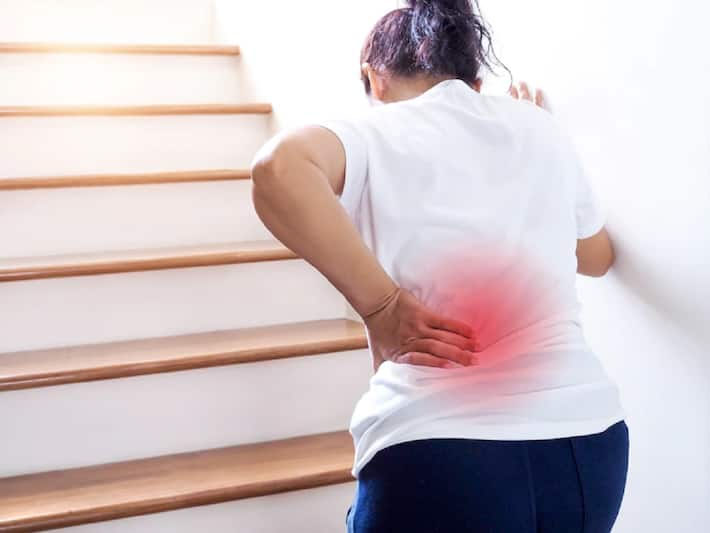
Osteoporosis is a common problem among postmenopausal women. Healthy habits of good nutrition and exercise can prevent the condition and reduce fracture risk
As you get older, the bone mass or density decreases. This increases the risk of osteoporosis and fractures. Women are at higher risk of developing osteoporosis after menopause due to a fall in levels of estrogen, a hormone that maintains bone mass.
What can you do to protect your bones and prevent osteoporosis? What preventive measures patients with weak bones can take to avoid further bone loss and reduce their risk of bone fractures?
Dr. Kshitij Chaudhary, Consultant Spine Surgeon, PD Hinduja Hospital & Medical Research Centre, Mahim, provide answers to these common questions related to osteoporosis and more here:
What is Osteoporosis?
Osteoporosis is a condition in which your bones become weak and soft. Sometimes the bones get so weak that they can break (fracture) easily. Breaking of bone can be serious, especially if it is the hip bone or spine as it can result in a serious disability and pain. That's why it is important to take preventative measures.
How can we prevent osteoporosis?
Some of the most important aspects of preventing osteoporosis include eating a healthy diet, getting regular exercise, and exposing your skin to sunlight.
Diet: An optimal diet involves enough protein and calories that are required to maintain muscle mass. Low protein in your diet will lead to loss of muscle mass which in turn leads to a reduction in bone mass. In addition, your diet should have plenty of calcium which is the main ingredient of our bones. We recommend that you have at least 1000 mg of calcium per day from all sources; this includes calcium from your diet plus supplements. Post-menopausal women should take about 1200 mg of calcium per day. The main dietary sources of calcium are milk (1 ml milk = 1 mg of calcium, which means one cup of milk has about 250 to 300 mg calcium) and other dairy products like Dahi, cheese, etc. Other good sources of calcium are green vegetables (spinach, broccoli).
If you cannot tolerate dairy products, then it is likely you don't get enough calcium through your diet. Then your doctor might prescribe you a calcium supplement (generally one tablet is 500 mg and this might be enough for you).
Vitamin D: This is also called the "sunshine vitamin" because your skin can make Vitamin D when exposed to sunlight. In India, where it is sunny most of the time you probably only need 15-20 minutes of sunshine 3 to 4 times a week to help your body create the vitamin D it needs. Food is not a very good source of Vitamin D. Most natural sources that have enough Vitamin D are animal in origin, like fish, fish oils, egg yolks, cheese, and butter. For strict vegetarians, it might be useful to look for Vitamin D fortified foods such as milk, milk alternatives, some brands of orange juice, and some vitamin-fortified breakfast cereals. Vitamin D is available as a supplement. If you are concerned that you are not getting enough Vitamin D, and wish to take supplements, talk to your doctor.
Exercise: Regular exercise helps you build strong bones. To help prevent osteoporosis, start exercising when you're young and continue exercising throughout your life. Even if you're older, it's never too late to start exercising. The best exercise to help prevent osteoporosis is a combination of strength training (free weights, resistance bands) and weight-bearing exercise. If you already have osteoporosis, avoid high-impact exercises. Ask your doctor for tips on how to start exercising safely.
Apart from following good healthy habits, it is also important to avoid smoking and excessive alcohol.
Falls are a leading cause of injuries among senior citizens. What can be done to reduce the risk?
The risk of falling increases the risk of fractures in senior citizens. Take measures to reduce this risk, removing loose carpets, or items in the home that could lead to tripping, slipping, and falling. Have good lighting in your house. Be careful of a slippery wet surface, especially in the bathroom. Review your medications with your doctor, especially the ones that can make you dizzy.
At what age one should go for osteoporosis screening?
Osteoporosis is a silent disease, meaning it does not cause symptoms until the bone fractures. Hence, a screening test like a DXA scan is recommended for postmenopausal women who are over 65 years and for women under 65 years if they have risk factors (past fractures, steroid use, rheumatoid arthritis, parent with a hip fracture). If a DXA scan detects osteoporosis, your doctor might advise you to take some medications in addition to the above measures.
Dr. Chaudhary concluded, "It is important to understand that osteoporosis is a common problem in post-menopausal women. Preventive treatment is available and is mainly focused on healthy habits of good nutrition and exercise. If you already have osteoporosis, some medical therapies are available in addition."
|
